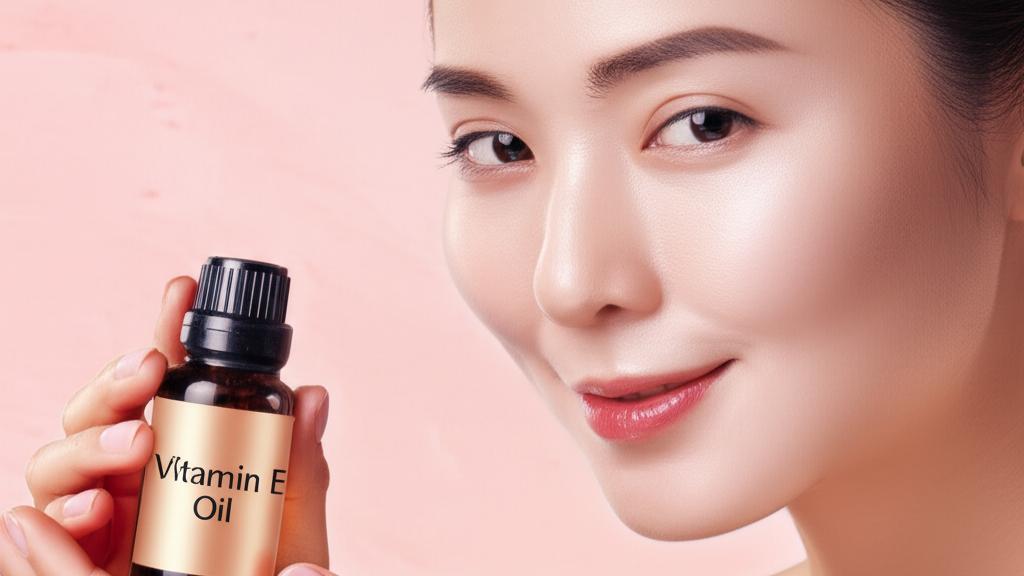A patient came into my office the other day holding a small, expensive bottle of Vitamin E oil. “Doctor,” she said, her eyes hopeful, “I read online that this will make my wrinkles disappear. Is that true?” It’s a question I hear a lot, and it gets right to the heart of a bigger conversation about this powerhouse nutrient. We see it everywhere—in foods, in supplements, in skincare. But what does Vitamin E really do for our bodies, and are we getting it right? Let’s talk about it, honestly.
What Exactly Is Vitamin E?
At its core, Vitamin E is a fat-soluble vitamin. This just means your body stores it in fatty tissue and the liver, unlike water-soluble vitamins that get flushed out if you have too much. Its most famous job is being an antioxidant.
Think of it like this: all day, your body’s cells are under attack from things called free radicals. These are unstable little molecules that cause damage, a process called Oxidative Stress. This stress can weaken our cells over time and is linked to aging and a host of health problems. Antioxidants, like our friend Vitamin E, are the body’s defense team. They step in and neutralize these free radicals before they can do harm.
Now, it gets a little more technical for a moment. Vitamin E actually comes in eight different forms. You might see names like gamma-tocopherol or delta-tocotrienol on a supplement label. But the only form our bodies are really set up to use is called alpha-tocopherol. That’s the one that truly counts for meeting your daily needs.
Getting the Good Stuff: Food First!
Here’s the best news: for most of us, getting enough Vitamin E is as simple as eating a healthy, varied diet. You don’t need to go searching for expensive pills. Your body can get everything it needs from delicious, everyday foods. Some products, like cereals or juices, are even “fortified” with extra vitamins, but I always recommend getting your nutrients from whole foods first.
Here are some of the best places to find it:
| Food Category | Examples |
|---|---|
| Nuts & Seeds | Sunflower seeds, almonds, peanuts, and hazelnuts are fantastic sources. |
| Vegetable Oils | Wheat germ oil, sunflower oil, and safflower oil are particularly rich. |
| Green Vegetables | Spinach and broccoli have a good amount. |
| Fruits | Kiwi, mango, and tomatoes are good fruit sources. |
Supplements: The Big Question and the Risks
This brings us back to that bottle of pills. Do you need a supplement? For the vast majority of people, the answer is a clear no. In fact, taking high-dose Vitamin E supplements can be risky.
It’s nearly impossible to get too much Vitamin E from food. The danger comes from high-dose supplements, because your body stores the excess instead of peeing it out.
Too much Vitamin E can thin your blood and increase the risk of bleeding, especially a dangerous brain bleed. This is a serious, life-threatening side effect. Because of this, we have clear upper limits for supplements. Adults shouldn’t take more than 1,000 milligrams (mg) per day.
There are a few rare exceptions. If you have a condition that affects how your gut absorbs nutrients—like Crohn’s disease, celiac disease, or ulcerative colitis—your body might struggle to get enough. In these specific cases, we might discuss a supplement, but it’s a conversation you must have with your doctor.
Be Careful with Other Medications
If you are considering a supplement, it’s critical to know that it can interfere with other medicines you’re taking.
| Medication Type | Why It’s a Concern |
|---|---|
| Blood Thinners (Anticoagulants) | Taking Vitamin E with these can significantly increase your risk of dangerous bleeding. |
| Cholesterol Medications (Statins, Niacin) | Antioxidant supplements, including Vitamin E, might reduce the effectiveness of these important drugs. |
| Cancer Treatments (Chemotherapy, Radiation) | There’s concern that Vitamin E could interfere with how well these life-saving therapies work. Never take supplements during cancer treatment without your oncologist’s approval. |
Take-Home Message
- Food First: The safest and most effective way to get your Vitamin E is through a balanced diet rich in nuts, seeds, and vegetables.
- Antioxidant Power: Its main job is to protect your cells from damage caused by free radicals, which supports your overall health.
- Supplement with Caution: Most people do not need Vitamin E supplements. They carry real risks, including an increased chance of bleeding.
- Talk to Your Doctor: Never start a new supplement without discussing it with your healthcare provider, especially if you take other medications or have a chronic health condition.
So, back to my patient and her vitamin E oil. While it can be a nice moisturizer, it’s not a magic eraser for wrinkles. True health, the kind that glows from the inside out, comes from nourishing your body with real food.
You’re not alone in navigating all this information. If you ever have questions, just ask. That’s what we’re here for.


